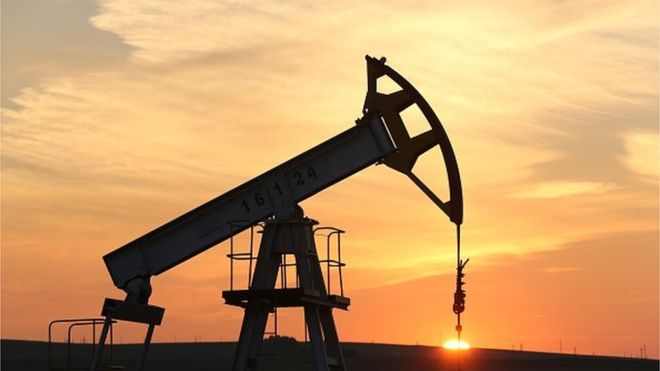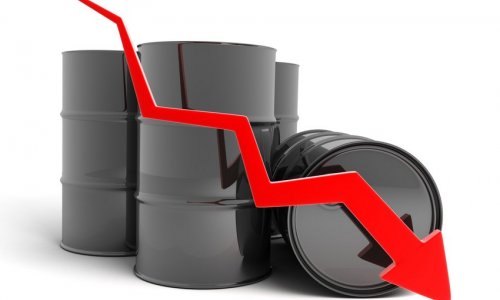Plunging oil prices have been blamed for a sharp rise in the number of UK oil and gas companies going bust.
Last year, 28 oil and gas service firms entered insolvency, up from 18 in 2014, according to research by accountancy firm Moore Stephens.
The company said the increase was "an almost inevitable result" of the drop in the oil price and the consequent cancellation of projects worldwide.
It estimates some $200bn (£140bn) worth of projects were cancelled last year.
Moore Stephens said the rise in oil and gas firm insolvencies was in stark contrast to 2010, when just four firms went bust in the 12 months to the end of September.
"Oil and gas service companies expanded their businesses over the last decade based on an oil price well above the current one.
"The pain caused by the oil price fall has translated into a rising tide of financial distress across the sector," said Moore Stephens head of restructuring and insolvency, Jeremy Willmont.
The figures from Moore Stephens come just days after oil services giant Schlumberger said it had cut 10,000 jobs in the past three months amid the plunge in oil prices.
Norwegian company DNV GL, an industry consultant, said its survey of 921 senior industry players showed the majority believed the industry was repeating the same mistakes of previous downturns, with 56% concerned over loss of jobs and experience.
Nearly three quarters of those it surveyed said they were preparing their company for a sustained period of low oil prices.
Opec resolute
Law firm Pinsent Masons said its survey showed that many of those in the oilfield services industry were hoping to capitalise on the drop in oil prices by buying up distressed firms.
In total, 70% of the 200 senior executives it surveyed were actively considering an acquisition within the next year, it found.
Oil prices have fallen by 70% in the past 15 months.
The drop in the price of oil has been driven by oversupply, mainly due to US shale oil flooding the market.
At the same time, demand has fallen because of a slowdown in economic growth in China and Europe.
Historically, Opec has cut production to support prices. But led by Saudi Arabia, by far the group's most powerful member, the group has resolutely refused to trim supply this time.
Many analysts have slashed their 2016 oil price forecasts, with Morgan Stanley analysts saying that "oil in the $20s is possible."
Economists at the Royal Bank of Scotland say that oil could fall to $16, while Standard Chartered predicts that prices could hit just $10 a barrel.
(BBC)
www.ann.az
Follow us !











